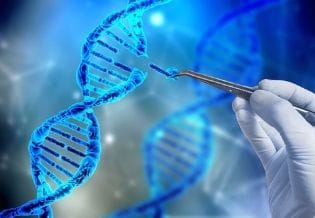Core Research Domains
Molecular Mechanisms of Tumorigenesis
- Oncogenic pathway activation and dysregulation
- Tumor suppressor inactivation mechanisms
- DNA damage response and genomic instability
- Epigenetic reprogramming in cancer initiation
- Cellular transformation and immortalization pathways
- Metabolic reprogramming in cancer cells
Cancer Biomarker Discovery & Validation
- Genomic and transcriptomic biomarker identification
- Proteomic and metabolomic signatures
- Circulating biomarkers (ctDNA, exosomes, CTCs)
- Analytical and clinical validation frameworks
- Biomarker performance in disease stratification
- Multi-marker panels for risk assessment
Tumor Evolution & Clonal Dynamics
- Clonal architecture and subclonal evolution
- Mutational signatures and mutagenic processes
- Temporal dynamics of tumor progression
- Metastatic dissemination mechanisms
- Therapy-induced evolutionary pressures
- Intratumoral heterogeneity characterization
Molecular Targets & Resistance Mechanisms
- Druggable target identification and validation
- Mechanisms of acquired therapeutic resistance
- Bypass signaling pathway activation
- Target mutation and structural alterations
- Synthetic lethality and combination strategies
- Pharmacogenomic determinants of response
Secondary Focus Areas
Tumor Microenvironment Interactions
Molecular characterization of cancer-stromal interactions, immune cell infiltration patterns, cytokine signaling networks, and microenvironmental influences on tumor behavior and biomarker expression.
Computational & Systems Biology
Network analysis of cancer pathways, machine learning models for biomarker prediction, multi-omics integration for mechanistic insight, and computational tools for genomic data interpretation.
Functional Genomics & Model Systems
CRISPR screens for target identification, organoid models recapitulating tumor biology, patient-derived xenografts for mechanistic studies, and functional validation of genomic alterations.
Germline Predisposition & Hereditary Cancer
Molecular mechanisms of inherited cancer syndromes, germline variant pathogenicity assessment, gene-environment interactions in cancer risk, and familial cancer biomarker development.
Epigenetic Regulation in Cancer
DNA methylation patterns in tumorigenesis, histone modification landscapes, chromatin remodeling complexes, non-coding RNA regulation, and epigenetic biomarkers for disease monitoring.
Single-Cell & Spatial Genomics
Single-cell transcriptomic profiling of tumor ecosystems, spatial transcriptomics revealing cellular architecture, clonal tracking at single-cell resolution, and cellular state transitions during progression.
Emerging & Selective Areas
JCGB selectively considers innovative research in emerging domains that demonstrate clear mechanistic novelty and biomarker potential. These submissions undergo additional editorial review for scope alignment and may require extended peer review.
- Artificial intelligence for pathway discovery and biomarker identification
- Extracellular vesicle cargo as mechanistic biomarkers
- Microbiome-cancer interactions at molecular level
- Radiogenomics linking imaging phenotypes to molecular alterations
- Circadian rhythm disruption in cancer pathogenesis
- Mitochondrial genetics and cancer metabolism
- Liquid biopsy technologies for minimal residual disease detection
- Multi-omics integration for precision oncology stratification
Explicitly Out of Scope
To maintain disciplinary focus on pathophysiology and molecular mechanisms, JCGB does not consider the following topics:
- Clinical Treatment Protocols & Therapy Guidelines Manuscripts focused on treatment regimens, dosing schedules, clinical management algorithms, or therapy selection without mechanistic biomarker insight belong in clinical oncology journals.
- Patient Outcomes & Survival Analysis Without Molecular Context Pure clinical outcome studies, survival analyses, or epidemiological investigations lacking molecular characterization or biomarker validation are outside our scope.
- Diagnostic Imaging & Clinical Pathology Without Genomic Integration Imaging studies, histopathological classifications, or diagnostic techniques that do not incorporate molecular profiling or biomarker correlation are not suitable.
- Health Services Research & Healthcare Delivery Implementation studies, cost-effectiveness analyses, healthcare policy, or access-to-care research without focus on molecular mechanisms or biomarker science should be submitted elsewhere.
- Purely Descriptive Case Reports Individual case reports or small case series lacking molecular analysis, mechanistic investigation, or biomarker validation do not meet our standards for mechanistic insight.
Article Types & Editorial Priorities
Original Research Articles
Comprehensive mechanistic studies with novel findings, robust validation, and clear biomarker implications. Typical length: 4,000-6,000 words.
Systematic Reviews & Meta-Analyses
Evidence synthesis on molecular mechanisms, biomarker performance, or pathway analysis with quantitative integration and mechanistic interpretation.
Methods & Technical Innovations
Novel methodologies for biomarker detection, genomic analysis, functional validation, or computational approaches with demonstrated utility and reproducibility.
Short Communications
Concise reports of significant mechanistic findings or biomarker discoveries requiring rapid dissemination. Maximum 2,500 words with focused scope.
Data Notes & Resource Articles
Descriptions of valuable datasets, biomarker panels, computational tools, or model systems with demonstrated utility for cancer research community.
Perspectives & Commentaries
Expert analysis of emerging concepts in cancer genetics, biomarker science, or molecular pathophysiology with forward-looking insights.
Opinion Pieces & Editorials
Invited only. Unsolicited opinion pieces are rarely accepted unless addressing critical methodological or conceptual issues in the field.
Case Reports
Only considered if presenting exceptional mechanistic insight, novel biomarker discovery, or unprecedented molecular characterization with broad implications.
Editorial Standards & Requirements
Reporting Guidelines
Adherence to REMARK (biomarker studies), STARD (diagnostic accuracy), TRIPOD (prediction models), or ARRIVE (animal studies) as appropriate.
Data Transparency
Raw data deposition in public repositories (GEO, SRA, ProteomeXchange). Code availability for computational analyses. Reagent sharing agreements.
Ethics & Consent
IRB/ethics committee approval documentation. Informed consent procedures. Animal welfare compliance (IACUC). Biosafety protocols.
Statistical Rigor
Power calculations, multiple testing corrections, validation cohorts, reproducibility assessments, and transparent reporting of negative results.
Conflict of Interest
Full disclosure of financial relationships, patent applications, consulting arrangements, and institutional affiliations relevant to submitted work.
Preprint Policy
Preprint deposition encouraged. Does not preclude consideration. Must be disclosed at submission with DOI or repository link provided.
Submission Preparation Checklist
- ✓ Manuscript addresses molecular mechanisms, biomarker validation, or pathway analysis within JCGB scope domains
- ✓ Methods section includes validation strategies (technical replicates, independent cohorts, orthogonal approaches)
- ✓ Ethics documentation complete (IRB approval, consent procedures, data governance)
- ✓ Data availability statement includes repository accession numbers or sharing plans
- ✓ Discussion articulates mechanistic insights and biomarker implications, not just clinical associations
- ✓ Figures and tables provide sufficient detail for independent interpretation and replication
- ✓ Keywords align with JCGB scope domains and facilitate accurate indexing
Ready to Submit Your Research?
Join the community advancing molecular understanding of cancer through rigorous biomarker science and mechanistic investigation.
Last updated: January 2025. JCGB scope is reviewed annually to reflect advances in cancer genetics, biomarker technologies, and molecular pathophysiology. For scope clarifications, contact [email protected].


